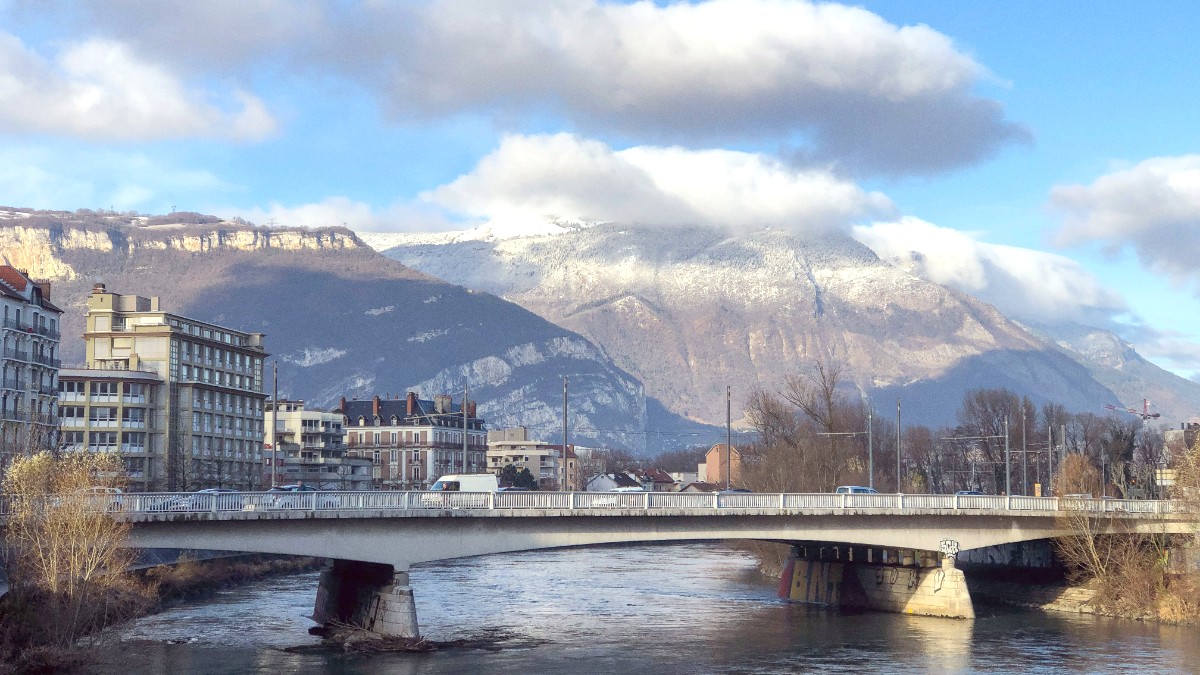
The French Alps, France
Grenoble has a semi-continental climate, due to its mountain surroundings. This means warm summers and cold, snowy winters.
Climate Patterns: Spring (April-May) is mild (10-20°C), with more rainfall. Summer (June-August) is warm to hot (20-30°C), with sunny days and occasional thunderstorms. Autumn (September-October) cools (10-20°C), with increased rain. Winter (November-March) brings cold temperatures (0-5°C), fog, and snow in the mountains.
Skiing and Snowboarding: December to March are good months. Hiking and Mountain Biking: June to September have favorable weather. City Sightseeing and Cultural Visits: May, June, September, and October are good months.
For outdoor gear needs, consider Amazon. For specialized travel bags, Nordace has options at Nordace.
France is part of the Schengen Area.
Citizens of USA, Canada, Australia, UK, Japan may stay up to 90 days in 180-day period without a visa.
ETIAS (mid-2025): €7 pre-travel authorization for visa-exempt non-EU citizens. Schengen Visa (Type C): For citizens not covered by waiver; apply at French consulate. Long-Stay Visa (Type D): For stays over 90 days.
Gather all necessary documents.
Passport must be valid for 3 months beyond departure from Schengen Area, issued within last 10 years. Travel medical insurance for minimum €30,000 for medical emergencies and repatriation is mandatory for visa applicants.
Proof of funds, return or onward ticket, accommodation proof, and itinerary needed. IVisa and VisaHQ may help with applications. For easy organization, consider a Travel document organizer.
General entry fees are not present.
Upon arrival, go through passport control. No mandatory vaccinations are needed for general tourism.
No special permits for tourism in Grenoble or nearby Alps. Respect national park regulations if venturing into protected areas.
The currency is the Euro (€). ATMs are widely available and offer good exchange rates; inform your bank of travel. Visa and Mastercard are widely accepted. Carry some cash for small purchases and markets. Currency exchange offices generally have less favorable rates.
Tipping is not mandatory. Service charge ("service compris") typically on bill. A small tip (€1-€5 for good service) is appreciated but not expected. Round up taxi fares to the nearest euro.
Budget: €30-€60 (hostel/budget hotel). Mid-Range: €70-€150 (3-star hotel/Airbnb). Luxury: €180+ (4-5 star hotel).
Budget: €25-€40 (supermarket, fast food). Mid-Range: €50-€80 (casual restaurants). Luxury: €100+ (fine dining).
Budget: €5-€10 (public transport). Mid-Range: €10-€15 (public transport, occasional taxi). Luxury: €20+ (frequent taxis/private transfers).
Budget: €10-€20 (free sites). Mid-Range: €20-€50 (paid attractions). Luxury: €60+ (premium tours).
Budget: €5-€10. Mid-Range: €10-€20. Luxury: €20+.
Prioritize your health and safety when traveling to Grenoble. Understand common concerns.
No specific vaccinations are required for entry into France. Consult your doctor 4-6 weeks before your trip for routine vaccination recommendations.
Pharmacies are identified by a green cross. Grenoble has excellent hospitals, including CHU Grenoble Alpes.
Tap water in Grenoble is safe to drink. Food hygiene standards in restaurants are high. Maintain good food hygiene, especially when buying from markets.